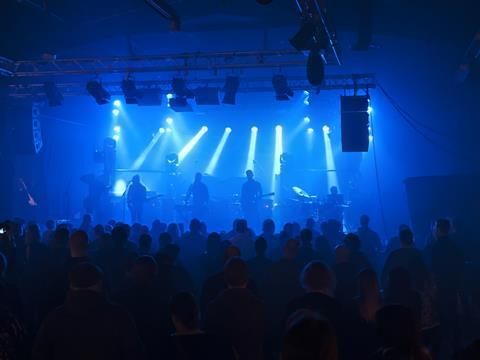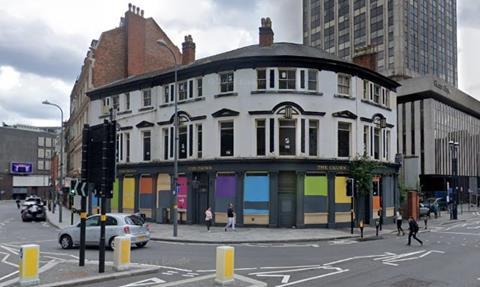Rising costs, shifting habits, and post-pandemic pressures are accelerating the decline of nightclubs, live music venues, and pubs, leaving cultural and economic voids in towns and cities across the UK

At the current rate of closures, all major UK nightclubs could vanish by December 2029, according to a stark warning from the Night Time Industries Association (NTIA).
The NTIA’s Last Night Out campaign, launched last year, highlights the existential threat facing the UK’s night-time economy, which has already lost 37% of its clubs since March 2020. The ongoing decline in nightclubs, live music venues, and pubs is reshaping the cultural and economic fabric of towns and cities, with wide-ranging implications for the built environment.
The challenges faced by these venues have been compounded by the aftermath of the Covid-19 pandemic, soaring energy costs, inflation and shifts in consumer behaviour. Research from the NTIA shows that three nightclubs per week – more than 150 per year – have closed since the pandemic began.
Michael Kill, CEO of the NTIA, warned: “We are witnessing the systematic dismantling of the night-time economy. Without urgent intervention, December 31, 2029, will be the last night out, and the end of a clubbing era that has defined generations.”

This NTIA points out that the crisis goes beyond nightclubs. Grassroots live music venues and pubs – many housed in historic buildings – are also under significant strain. Rising rents and the cost-of-living crisis have hit small, independent operators the hardest. According to the NTIA, nearly 40% of grassroots music venues operated at a loss in 2023, with many reducing live music programming or closing entirely. Similarly, data from CGA, a hospitality consultancy, shows that pubs and bars have seen a 43.6% decline in premises over the past 20 years.
According to data from the NTIA, in 2005, the country boasted over 3,000 nightclubs, but by June 2023, only 851 remained. Live music venues also saw a sharp drop, from 960 in 2022 to 835 in 2023. Meanwhile, the number of pubs shrank from 51,500 in 2003 to 39,933 in 2023.
> Also read: MOTH Club at risk as Hackney housing plans spark controversy
Many in the industry argue that the loss of nightlife spaces is diminishing the vibrancy of urban areas, potentially weakening their appeal as cultural hubs. They contend that venues are not solely places for entertainment but also serve as incubators of creativity, community, and social interaction. According to these perspectives, closures risk creating voids in town centres and high streets, with concerns about the impact on local economies and the future of historic buildings that may remain vacant or underused.

For architects and urban designers, these closures present complex challenges. Many night-time venues operate in historically or culturally significant buildings that can be difficult to repurpose. Some former pubs and nightclubs are converted into residential units, but the loss of social spaces can diminish the broader identity of an area. In other cases, venues are left derelict, contributing to urban decline.
Last year, Birmingham’s Crown Hotel, a historic pub famed for hosting early performances by Black Sabbath, was awarded Grade II-listed status in an effort to safeguard the site from what many saw as the looming threat of residential redevelopment. While the listing has increased the likelihood of preserving the building’s architectural and cultural heritage, the pub has remained unused since 2014. Proposals to revitalise it as a cultural venue fell through amidst the city council’s ongoing financial struggles, leaving its future uncertain despite its newly recognised status.
The declining number of nighttime venues and clubs highlights the growing tension between new residential developments in urban areas and the preservation of cultural spaces. The controversy surrounding Hackney’s MOTH Club – where nearly 14,000 people have signed a petition against two proposed adjacent housing developments – underscores the challenges of balancing London’s housing needs with its night-time economy.
> Also read: Black Sabbath pub gets grade II listing
Sacha Lord, night time economy advisor for Greater Manchester, highlighted the broader impact: “The night-time economy has been an integral part of our cultural and economic history. It’s more than just a night out; it’s where friendships are forged, creativity flourishes and local economies thrive. The current trajectory spells disaster not only for the businesses themselves but for the communities they serve.”
The economic pressures on venues have grown significantly in recent years. Inflation has driven up energy prices and rents, while consumers are increasingly cautious about discretionary spending. The NTIA’s 2024 report notes that despite a rebound in attendance for live music events post-pandemic, smaller venues have struggled to cover rising costs. Meanwhile, pubs and bars are grappling with changing consumer preferences, with younger demographics favouring experience-led or food-centric venues over traditional drinking establishments.
The NTIA and other industry bodies are calling for urgent government action to prevent further closures. Proposed measures include business rates relief, VAT reductions and recognition of night-time venues as cultural institutions on par with museums and galleries. Michael Kill stressed the importance of immediate support: “The loss of our venues means the loss of jobs, culture and a vital part of the UK’s social fabric.”
> Also read: Ian Chalk Architects submits plans for Troxy restoration and new hotel
















No comments yet